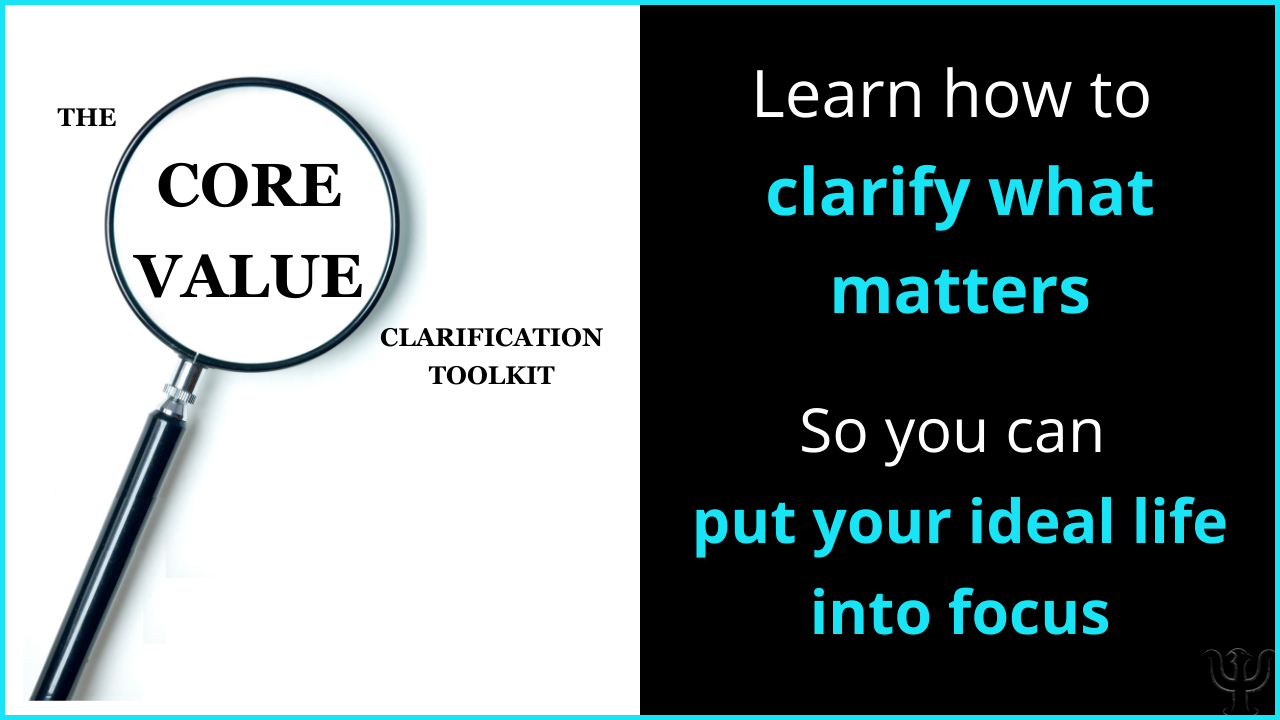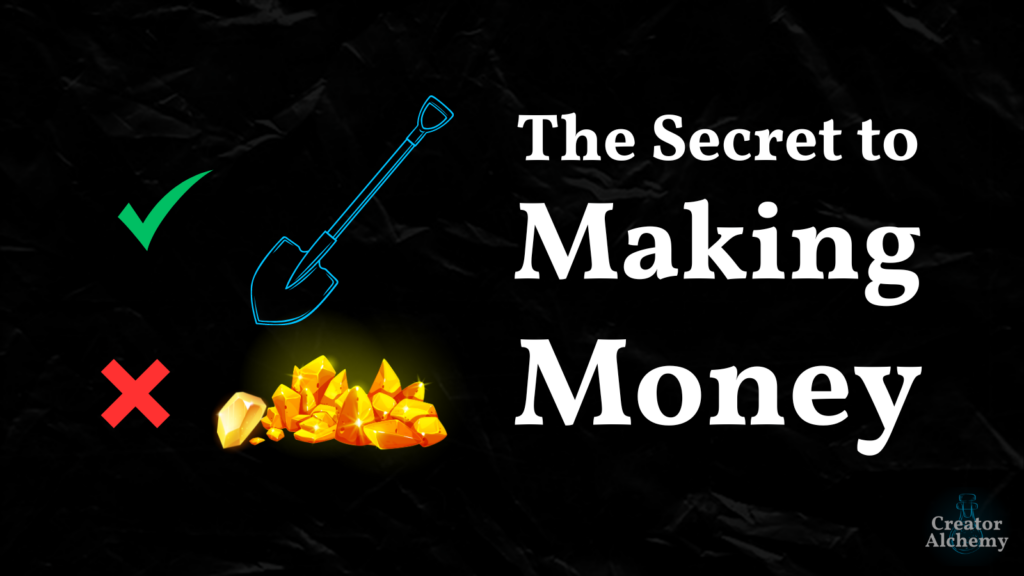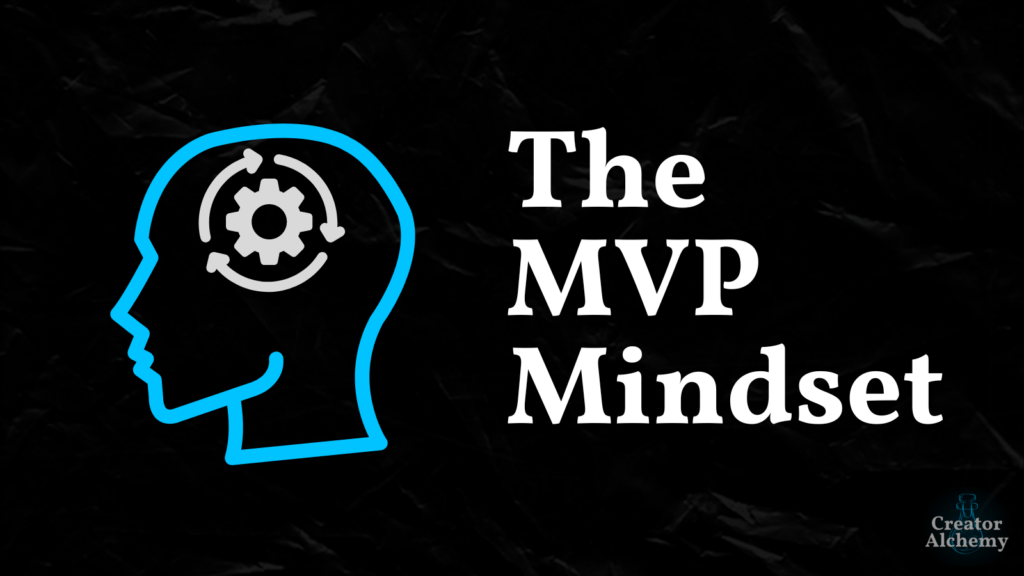Instead of wasting your time making New Year’s Resolutions you’ll abandon in 3 weeks, here’s a better approach to setting worthwhile goals using evidence-based psychology.
Psychologists say, “past behavior predicts future behavior.”
Most people set goals assuming they’ll magically develop the willpower and discipline to lose weight, be more productive, develop courage or compassion, or make some other miraculous improvement as soon as January 1st rolls around.
But they’re bringing their old habits with them into the new year (or anytime they set new goals).
Then they wonder why they fail after a few weeks.
They’re forgetting one critical truth:
They’re the same person with the same habits, but they’re relying on suddenly becoming a new person with new habits.
That isn’t how it works, at least for most of us mere mortals.
So before you set goals for the future, review your past results by asking these questions:
•••
Four Questions to Gain Clarity on the Past
1. What were my goals this past year?
Most people create vague goals like “lose weight,” “be more productive,” or “read more.”
If your goals were vague, that’s ok. It’s a good data point to bring with you into the future. But these goals are hitting on your priorities.
Dig deeper by asking why you chose these goals:
- Why did you want to lose weight?
- Why did you want to be more productive?
- Why did you want to read more?
Dig into what goals you chose, and why you chose them, to gain a deeper understanding of what you thought was important. Maybe those things are still important to you, or maybe you’ve realized they’re not.
2. What progress did I make on them?
If you made major progress on your goals, congratulations! Dig deeper into what helped you make progress that you can replicate with future goals.
If you didn’t make the progress you wanted, dig into that, too. It probably came down to your habits and how you approached your goals:
You’ll see tons of numbers thrown out about how long it takes to establish a habit—21 days, 6 weeks, etc. What you won’t see is how easy it is to get derailed and revert to your old behaviors. We’re creatures of habit, so being intentional with how we approach habits is everything. The best book I’ve found on creating sustainable habits is Atomic Habits by James Clear, so check it out if you need help building better habits.
If you’re struggling to gauge your progress, it’s because you created vague goals. Vague goals = vague results. A simple strategy to create specific, measurable goals is the SMART approach. “Lose weight” is vague. “Lose 10lbs within 3 months” is SMART.
3. What obstacles did I face and how did I deal with them?
Stress, no social support, Imposter Syndrome, lack of resources, over-complicating your goals or approach—these obstacles will continue to impede your progress if you keep ignoring them.
Once you identify the things that tried to stand in your way, dig into how you dealt with them. Did you let them stop you from making progress, or did you develop strategies to overcome them? What worked and what didn’t work?
Problems are like solutions—they’re boomerangs. Old obstacles will keep coming back if you don’t deal with them. And old solutions can be brought back and applied to new problems.
So when you find a solution that works, keep it in your back pocket to use in the future.
4. What lessons from this past year am I going to use to set myself up for success in the coming year?
Did you learn your goals were too vague or weren’t that important to you?
Is there a common theme in your obstacles, like relying on willpower and motivation instead of developing systems to set yourself up for success?
What have you discovered about your own strengths and resources that helped you overcome past obstacles?
After you’ve done this quick review, you’re ready to plan for the future.
Here are a few questions to keep you focused on what matters:
•••
Four Questions to Gain Clarity on the Future
1. What is the core value that guides my life?
Goals are great, but most people make goals based on what they think they should want.
When your goal doesn’t resonate with you on a deep level, one of three things happens:
- You give up.
- You half-ass it because you’re not committed to making the sacrifices it’ll take.
- Or you do reach your goal, but victory feels hollow. “Success” feels empty when you spend your life chasing the wrong things.
Most of us can’t shake the nagging feeling we’re meant for more, that there’s more to life than the Slave, Save, Retire rat race. But until we take a step back, dig deep into what drives us, and evaluate what’s important to us as an individual, we’ll never know what direction is worthwhile.
How do you avoid this fate?
You create goals you actually want to achieve—goals that will pave the way toward your ideal life where you spend each day doing meaningful, purpose-driven work that fulfills you—what I call an Intentional Life.
But how do you create these goals?
By clarifying your core value, then developing goals that act as stepping stones—where each goal gets you one step closer to an Intentional Life.
Your core value is the one underlying value that unites everything you stand for, it’s the running theme across the times in your life you felt most alive, it’s what matters most to you, and it’s the most fundamental piece of what a life well lived must include.
Most people don’t have clarity on what their core value is.
We get so caught up in chasing the carrot on a stick—more money, more prestige, more things—we never stop to truly examine what makes life worth living or what fulfillment truly means.
I’ve worked with Youtubers with millions of subscribers (and revenue), founders of Google-backed companies, serial entrepreneurs, and other people who were successful on paper, but had no idea what their core value was.
Despite their success, they weren’t fulfilled by the life—or businesses—they’d spent so much time and energy building.
Your core value acts as a golden compass to guide you toward an Intentional Life.
Without this clarity, they were adrift in business and life.
I helped them navigate the rocky waves of figuring out what a meaningful, purpose-driven life of fulfillment looks like for them, but I wanted to help more people do the same. So I created a micro-course packed with all the strategies I use with 1:1 clients to help them clarify their core value and take the first step toward building an Intentional Life.
If you’re interested in getting access to these strategies to clarify your core value, so you can stay focused on building your life and business around meaningful, purpose-driven work that fulfills you, check it out here:

2. What is the highest-leverage goal that, if I achieve it, will dramatically improve my life over the next 12 months?
Ideally, this goal should get you closer to a life aligned with your core value.
Most people set too many goals, then wonder why they’re not making progress. The more goals you set, the more you’re choosing to split your time, energy, money, and attention between them.
If you have too many priorities, you have no priorities.
Time is your most valuable resource, so what is the single goal most worthy of your time?
Once you have this single goal in mind, you can create sub-goals that sequentially build toward it.
For example: Maybe your big goal could take you all year to achieve. You can break it down into 12 sub-goals. Now you know what to focus on for each month. If this still seems too big, break each monthly goal into 4—now you know what to focus on each week.
But every sub-goal is directly related to your overall high-leverage goal.
Like the saying goes: How do you eat an elephant?
One bite at a time…
3. What are the top 3 obstacles that could get in the way of achieving my goal?
You’ve already identified obstacles that stood in your way in the past. Now learn to anticipate obstacles that could get in your way in the future.
You can brainstorm more than 3, but focusing on the top ones helps you prioritize what to focus on for the next question.
4. What are my top 3 strengths and resources I can use to overcome these obstacles?
Think of all your solution-boomerangs you can pull back out to overcome these obstacles. Now add to these.
What strengths and skills are at your disposal?
What resources can you tap into, including people, money, tools, or other types of access?
Think of everything and everyone in your network. How can you recruit them to help you overcome these obstacles?
Putting It All Together
Now, put your answers together to fill in this statement:
I am going to [leverage my strengths] to [overcome obstacles] and [achieve my goal] that will get me one step closer to a life aligned with my core value of [insert core value].
This is the best approach I’ve found to create worthwhile goals and build an Intentional Life, where you do meaningful, purpose-driven work that fulfills you.
It’s simple, but effective.
If you’re interested in diving deeper into these strategies, check out Build an Intentional Life. It’s a convenient, self-paced course designed to help you build a fulfilling life and business aligned with your values using proven strategies that’ve helped people all over the world clarify what matters, overcome limiting beliefs, and pursue their purpose.



